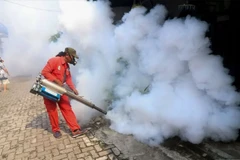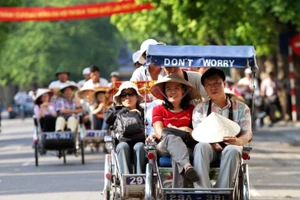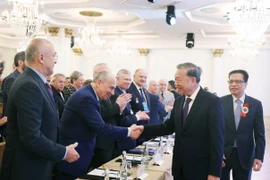The First Meeting of the Special Experts Working Group on the ASEANRegional Standards for Organic Agriculture and the 9th Meeting of theTask Force on ASEAN Standards for Horticultural Produce and Other FoodCrops officially opened in Brunei’s capital, Banda Seri Begawan, onApril 8.
The five-day meetings, jointly held by theBrunei Ministry of Industry and Primary Resources’ Agriculture andAgrifood Department and the ASEAN Secretariat, have drawnrepresentatives from all 10 member nations.
The ActingDirector of the Department, Hajah Aidah binti Haji Mohd Haniffah,stressed the important role of ASEAN as the region’s leading exporter ofagricultural and food products.
However, she noted thatASEAN is facing challenges posed by trade liberalisation, adding thatthe region needs to produce horticultural and food products that cancompete in both regional and international markets.
Aidahwent on to assert that it is imperative to adopt and harmonise ASEANmember states' national standards with the established internationalstandards.
Officials and experts at the meetings discussedissues related to boosting organic farming under a sustainableagro-ecological model.
There are no specific guidelinesor standards for organic agriculture in ASEAN member countries,participants admitted, adding that the development of organic farming inthe region depends on the actions of individual countries.
Participant will prepare draft standards for organic produce, build afuture working agenda for the Working Group and propose activities todevelop the strategic action plan.
ASEAN is building aneconomic community for 2015, which recognises the importance of theagricultural sector and the Single Market and Production Base.
Since the First Meeting of the Task Force on ASEAN Standards forHorticultural and other Food Crops took place in 2005, the grouping hasestablished 24 ASEAN standards for various tropical fruits andvegetables.-VNA
The five-day meetings, jointly held by theBrunei Ministry of Industry and Primary Resources’ Agriculture andAgrifood Department and the ASEAN Secretariat, have drawnrepresentatives from all 10 member nations.
The ActingDirector of the Department, Hajah Aidah binti Haji Mohd Haniffah,stressed the important role of ASEAN as the region’s leading exporter ofagricultural and food products.
However, she noted thatASEAN is facing challenges posed by trade liberalisation, adding thatthe region needs to produce horticultural and food products that cancompete in both regional and international markets.
Aidahwent on to assert that it is imperative to adopt and harmonise ASEANmember states' national standards with the established internationalstandards.
Officials and experts at the meetings discussedissues related to boosting organic farming under a sustainableagro-ecological model.
There are no specific guidelinesor standards for organic agriculture in ASEAN member countries,participants admitted, adding that the development of organic farming inthe region depends on the actions of individual countries.
Participant will prepare draft standards for organic produce, build afuture working agenda for the Working Group and propose activities todevelop the strategic action plan.
ASEAN is building aneconomic community for 2015, which recognises the importance of theagricultural sector and the Single Market and Production Base.
Since the First Meeting of the Task Force on ASEAN Standards forHorticultural and other Food Crops took place in 2005, the grouping hasestablished 24 ASEAN standards for various tropical fruits andvegetables.-VNA
























